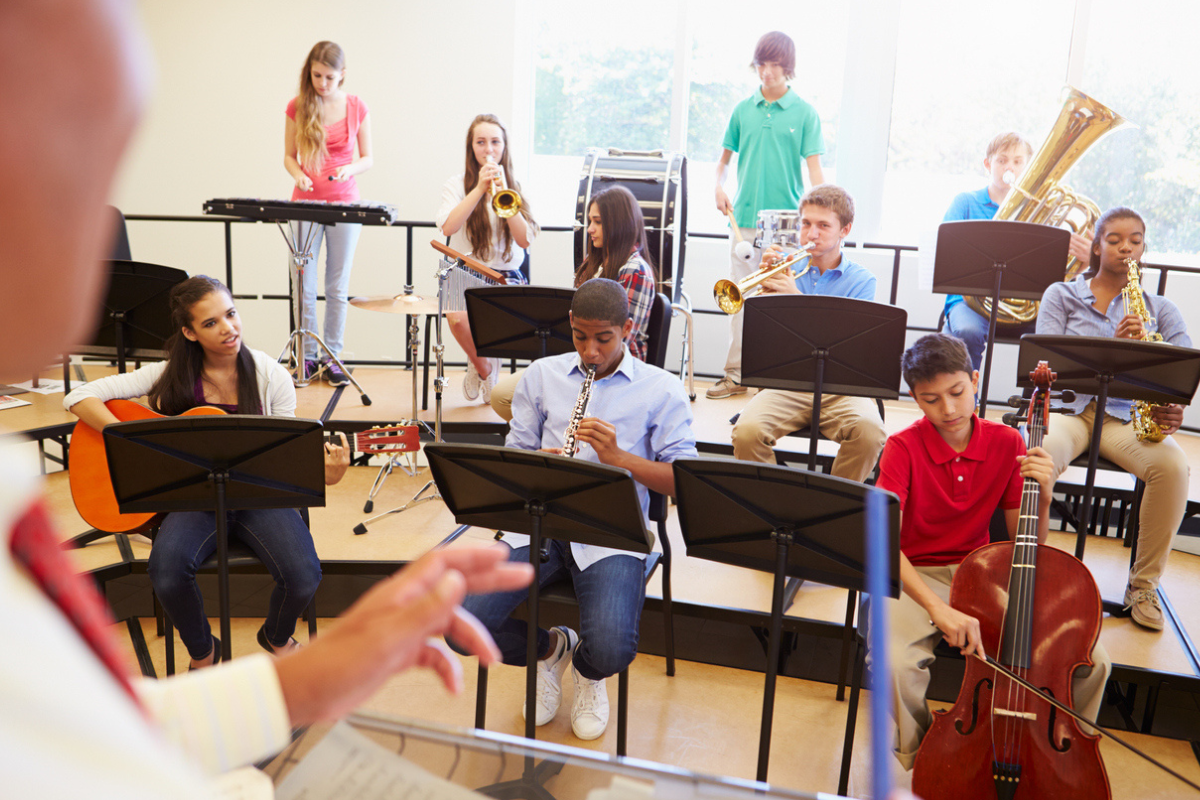
Photo: monkeybusinessimages
Ministerial commitment to music education questioned
Department for Education confirms that a minister has been present at only one meeting of the board in charge of challenging the government on music education plans.
Government's commitment to music education has been questioned after it emerged that only one meeting of the National Plan for Music Education Monitoring Board has been attended by a minister since it was established nine months ago.
Responding to a written question from Labour MP Barbara Keeley, Schools Minister Damian Hinds said that of the three meetings held since June 2023, only the second was attended by a minister – his predecessor Nick Gibb, who resigned from the role in November.
Keeley, who is Shadow Minister for Music and Tourism, called the attendance level “disappointing but unsurprising”, adding, “It’s just another example of how the Conservatives have undervalued creative education in our state schools for the last 14 years.”
READ MORE
- Music education hub reforms 'immensely challenging'
- Ofsted finds inequalities in music education persist
She continued: “Thanks to the Tories, music education is in crisis. Labour will make sure every child has an education which is rich and broad, inclusive and innovative and which recognises the value of creativity and creative subjects in supporting children to thrive.”
Keeley also asked if the minutes of the board meetings would be published, to which Hinds, who was appointed in November 2023, responded, “There are no plans to publish the minutes of these meetings.”
When asked by Arts Professional about ministerial attendance at the monitoring board meetings and whether it was likely to continue at the same level, the Department of Education and Department of Culture Media and Sport said they “wouldn’t comment on a minister’s diary.”
National Plan
Published in 2022, the National Plan for Music Education NPME sets out the government’s vision for music education until 2030.
It aims to "enable all children and young people to learn to sing, play an instrument and create music together" and to have the opportunity to "progress their musical interests and talents, including professionally."
However, implementing the plan, which includes reducing the number of music hubs from 116 to 43, has been described as "immensely challenging" by Stuart Whatmore, Head of the Tri-borough Music Hub which covers Westminster, Hammersmith and Fulham, and Kensington and Chelsea.
ACE has also recently indicated that encouraging schools to fulfil their responsibilities within the refreshed plan has been challenging, writing: "We must acknowledge that some schools are going to take longer than others to get there."
An update on the NPME posted by ACE in February revealed that as of March 2023, over half of schools did not have a music development plan in place, and around a quarter did not plan to implement one in the current academic year.
Deborah Annetts, Chief Executive of the Independent Society of Musicians, has said the plan's delivery is "under serious threat" because "many of the practicalities have simply not been thought through".
Government established a Monitoring Board for NPME in June 2023 to oversee its implementation by keeping track of progress on delivering commitments and establishing an impact framework. It is expected to remain in place until 2030 operating in an advisory capacity only.
Chaired by Veronica Wadley CBE (Baroness Fleet), who is responsible for updating ministers on its progress, the board holds a minimum of two to three meetings per academic year as needed and includes remote/virtual participation at Wadley’s discretion.
'Need for commitment'
In a statement to Arts Professional, ISM said that despite DfE launching the Monitoring Board "with some fanfare," a year on, "the music education sector hasn’t heard anything from it".
A spokesperson said: "The minister’s confirmation that no minutes will be shared with music educators and that discussing music education isn’t usually considered an important enough use of his time to attend meetings, is disappointing.
"Every student should have access to high quality music education in school, and to achieve this we need commitment from, and alignment across, government.
"We’ve seen the impact of lack of alignment recently, with the Cultural Education Plan seriously delayed and cuts to creative arts higher education courses while the Treasury talks about the creative industries as a growth sector."
Join the Discussion
You must be logged in to post a comment.